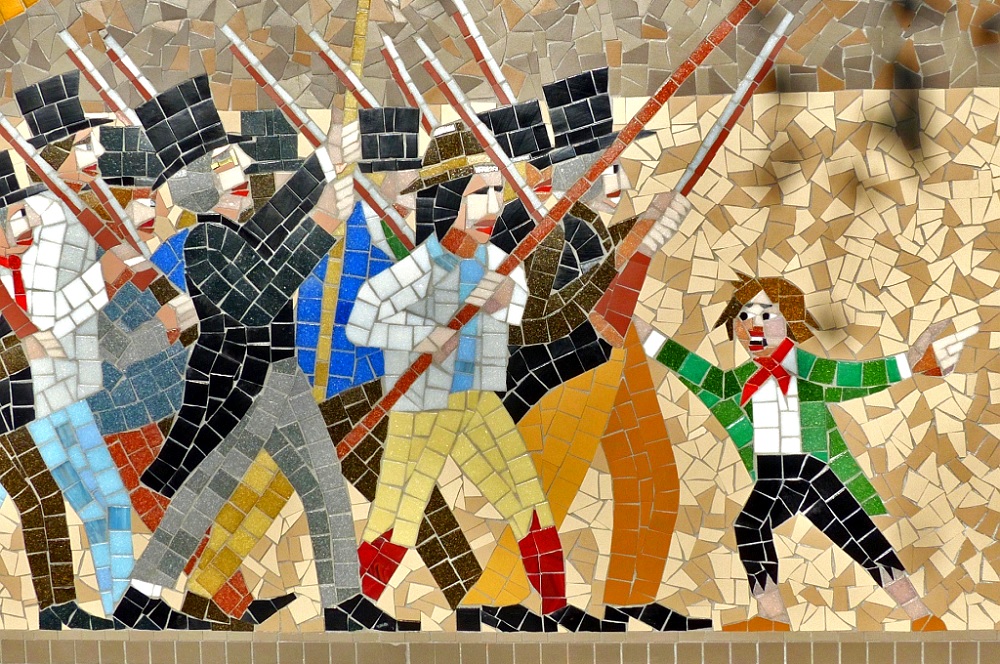Time is running out on the history of Wales

Siân Gwenllian, Plaid Cymru Member of Senedd for Arfon
“When I want to understand what is happening today, or try to decide what will happen tomorrow, I look back.” – Omar Khayyám
The idea of using past experience to help us understand the present is not a contentious issue. Nor is learning about the people who came before you, or indeed the history of your country.
What is contentious is that the teaching of the history of Wales will not be mandated in the Welsh Government’s new curriculum.
It will be a lost opportunity unless the Education Minister changes her mind or the Senedd votes in favour of a number of amendments that I will be tabling. But there isn’t much time left for this discussion.
Time is running out on the history of Wales.
The new curriculum promises to support our children to be “ethical, informed citizens of Wales and the world” yet argues against teaching a common body of history. Instead, schools will be encouraged to teach children about local history. While learning about your local area is important, this might be the only Welsh history children will learn about.
Unless you’re from a traditional industrial area, you might never learn about Wales’ rich mining history – a history that still impacts and shapes the communities around it today.
Unless you’re from Cardiff, you might never learn about the Cardiff Race Riots of 1919, and their importance in the context of recent events in Cardiff Bay, with the recent death of Mohamud Hassan shortly after his release from police custody.
Unless you’re from Newport or Blaenau Gwent, you might never hear about the Chartists, and how they put pressure on politicians to concede the right for working men to vote.
The national story of Wales, in all its diversity, including the history of black people and people of colour, needs to be a compulsory part of the new curriculum. It must be referred to on the face of the Bill, and supported with resources and training for teachers.
Experience
In 2019, a Senedd culture committee found that the teaching of Welsh history in Wales was already “patchy”. A Wales Arts Review article written in response to these findings, warned against the removal of compulsory elements, concluding it would “run the risk of removing both diversity and big-picture understanding of Welsh history.”
If the teaching is not mandated, then “patchy” teaching soon becomes gaping holes in what our children are being taught. Children will learn different things, depending on where they are in Wales.
Good practice can’t be shared as easily, since every school is teaching something different across the country.
If the only history you learn is from your local area, it’s like a driver trying to see everything that’s behind them by only using their rearview mirror. You won’t be aware what blind spots you have.
The reason this is important is because history is more than learning from other people’s experience. What went before us, shapes us.
I started with a quote from Omar Khayyám for a reason. Khayyám believed that history does more than help us work through present issues using yesterday’s solutions. For Khayyám, what happens in the past absolutely governs what happens in the future.
How much the past directly influences the way you behave today might be a matter of personal opinion, but our history clearly had a hand in shaping the world around us, and creating the Wales we know today.
I believe that all children have a right to understand their history and heritage, and that it’s vitally important to ensure that they have an awareness of Wales’ national identity and the historical basis of our modern society.
For children to be “informed citizens of Wales”, then they absolutely must be taught the history of Wales, it’s lessons, and all the ways it’s helped shape us.
Support our Nation today
For the price of a cup of coffee a month you can help us create an independent, not-for-profit, national news service for the people of Wales, by the people of Wales.






